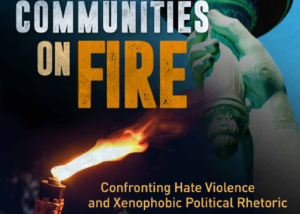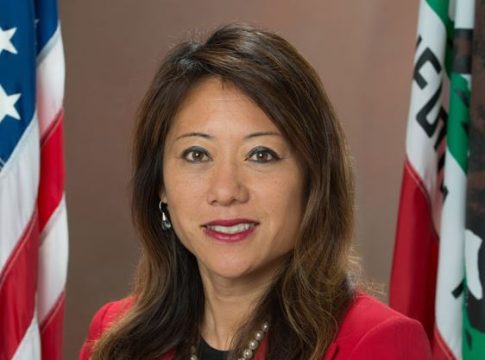 By Sophia Whittemore
By Sophia Whittemore
AsAmNews Staff Writer
Their aim was to condense information on hate crimes that occurred in the year following the election of Donald Trump, calling to mind that hate hasn’t ceased since the Muslim Ban.
The civil rights group says the numbers rival the Islamophobia of the post-9/11 era. SAALT charges the harmful rhetoric of the current administration has only fueled anti-immigrant, anti-Black, and anti-Muslim hatred.
The report found 302 incidents of xenophobic hate crimes.
“It’s becoming tragically clear that… hateful violence will not end anytime soon,” the report stated. “While the “melting pot” analogy of the U.S. is often presented as a utopia… we also see a surge of White supremacists across the country. And they’re enabled by the political rhetoric of the White House… We’ve seen an over 45% increase of hateful rhetoric against our communities.”
LATEST STORIES
Hate crimes include verbal harassment, physical assault, property desecration, and direct attacks on community houses of worship. SAALT aims to forge a collective response to unify and express solidarity for the communities’ victims.
“Many people of our community,” continues SAALT Executive Director Suman Raghunathan, “feel our very place in the nation is being questioned.”
SAALT says hate crime data collection is still largely inaccurate. It called for:
1) An inclusive hate crime statue that accounts for race, ethnicity, ancestry, sexual orientation, religion, gender, gender identity, and disability. 2) A mandatory data collection statute that requires law enforcement agencies to report/collect data/ and publish statistics on hate crime. 3) a state level data collection report to aid and contribute to federal standards, especially to the anti-Arab/anti-Muslim categories. 4) consistent hate crime FBI statistic reporting.
Becky Monroe of the Lawyers Committee for Civil Rights Under Law discussed the question of intersectionality when addressing hate crimes, namely, that people can be defined by more than one identity (E.g. sexual, race, ethnicity, gender, ancestry, religion, disability). That also means that people can be targeted for hate crimes based on more than one identity. However, she says people can come across those different communities to help combat hate and learn how to engage law enforcement. For example, in Alabama, organizations for transgender communities, religious, LGBTQIA+, and racial minorities all joined to approach law enforcement to create resources against hate crimes.
The report called for people to stop being silent, to speak out early whenever you witness hate or bias motivated by somebody’s identity. Sim Singh of the Sikh Coalition pointed out there is an estimate of at least one hate crime against a Sikh American a week. She says threats of violence against individuals has surpassed even property crime.
For example, a Sikh American taxi driver was verbally assaulted and told to “go back to your country” by one of his passengers. A different Sikh American Uber driver had a gun put to his head, and he had to wait three weeks for law enforcement to deal with this life-threatening incident and capture the offender. “This kind of activity only normalizes hateful views against minority communities,” states Singh, “reflecting a deeper problematic issue.”
Finally, Darakshan Raja of the Muslims Collective called for intra-community bonding. He says class differences, skin color biases, or other differing identifying factors should not fragment the overall larger community. He called on communities to band together against hate crimes to protect women from sexual assault, to protect those of differing gender, sexual, ancestral, religious, ethnic, and racial identities and to stand for those who cross the intersectionality between all those, like queer women of color. Raja says sexual violence against Muslim communities must be stopped, and gendered Islamophobia must be tackled.
Finally, the briefing ended with a pledge from SAALT to help accurately document hate crime and called for allies to help affected communities in this time of divisive rhetoric, to secure a safer future for those of minority identities.
Other speakers included Sen. Ben Cardin (D-MD), Rep. Ro Khanna (D-CA) Rep. Grace Meng (D-NY, Maya Berry (Executive Director of Arab American Institute).
AsAmNews has Asian America in its heart. We’re an all-volunteer effort of dedicated staff and interns. You can show your support by liking our Facebook page at www.facebook.com/asamnews, following us on Twitter, sharing our stories, interning or joining our staff.









